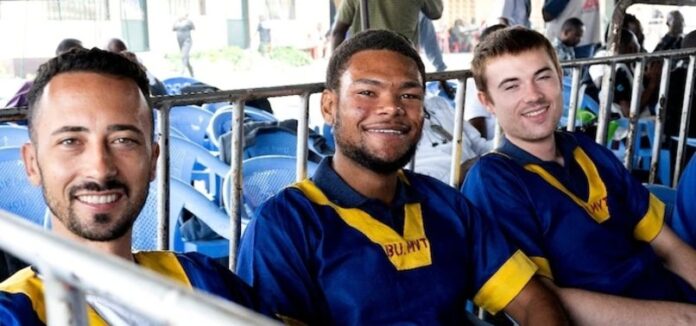The Democratic Republic of Congo (DRC) has been shaken by a coup attempt resulting in the death sentences of thirty-seven individuals, including citizens from the United States, Britain, Belgium, and Canada.
This dramatic development stemmed from a significant attack on the presidential palace and the residence of a close ally of President Félix Tshisekedi on May 19. The attacks were led by Christian Malanga, a US national of Congolese descent, who was killed during the event.
The military court’s decision was sparked by various testimonies, including those from family members of the convicted.
Marcel Malanga, son of the alleged plot leader, referenced threats from his father to participate in the coup attempt, alongside his friend Tyler Thompson, both of whom have ties to Utah.
His friend Tyler Thompson, was also given the death penalty. The pair, aged in their 20s, had played football together in Utah.
His stepmother Miranda Thompson in June said she had no idea how he had ended up in DR Congo.
“We were in complete shock as to what was happening, and the unknown. Everything we were learning was what we were getting off Google,” she said, TBPA learned.
The third American in the case, Benjamin Zalman-Polun, had business interests with Christian Malanga.
Also sentenced to death was Jean-Jacques Wondo, a dual Congolese and Belgian citizen.
The pronounced death sentences have raised international concern, especially as this marks a significant moment in DRC’s political landscape, which had not executed such penalties for nearly two decades.
Human rights organizations and global observers are closely monitoring these proceedings. The case has even seen advocates like Human Rights Watch raising concerns about the evidence and fairness of the trials.
However, the court heard the British national, Youssouf Ezangi, had helped recruit some of the others who took part.
Of the 51 tried, 14 people were acquitted and freed, with the court finding they had no connection to the attack.
With the court allowing five days for an appeal, the decisions taken in the coming weeks will be critical.
The attempted coup began in the capital, Kinshasa, in the early hours of 19 May. Armed men first attacked parliamentary speaker Vital Kamerhe’s home in Kinshasa then headed to the president’s official residence.
Witnesses say a group of about 20 assailants in army uniform attacked the palace and an exchange of gunfire followed.
An army spokesman later announced on national TV that security forces had stopped “an attempted coup d’etat”.
Local media reports said the assailants were members of the New Zaire Movement linked to Malanga, an exiled DR Congolese politician.
Malanga was shot dead in the attack after resisting arrest, said army spokesperson Brig Gen Sylavin Ekenge.
President Tshisekedi was re-elected for a second term in disputed elections last year in December. He won about 78% of the vote.
Moreover, President Tshisekedi’s government has expressed an intent to eradicate treasonous activities affecting the military, complicating the narrative around governance in DRC, where corruption and conflict are persistent challenges.





